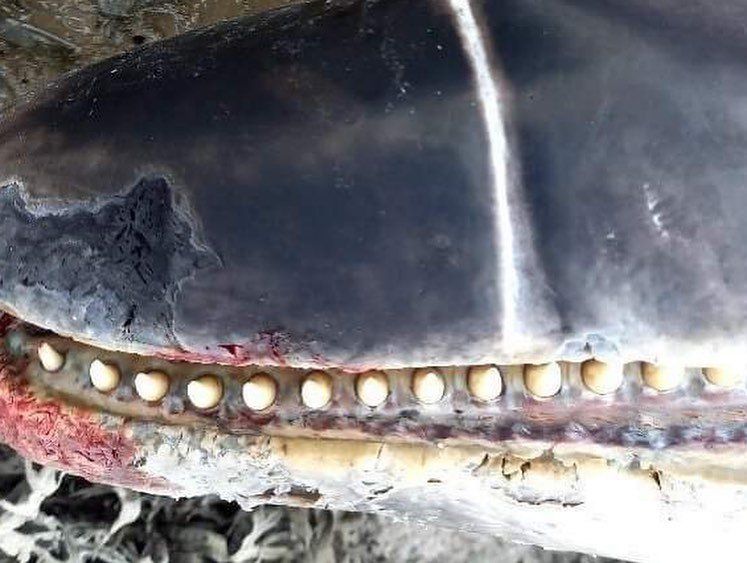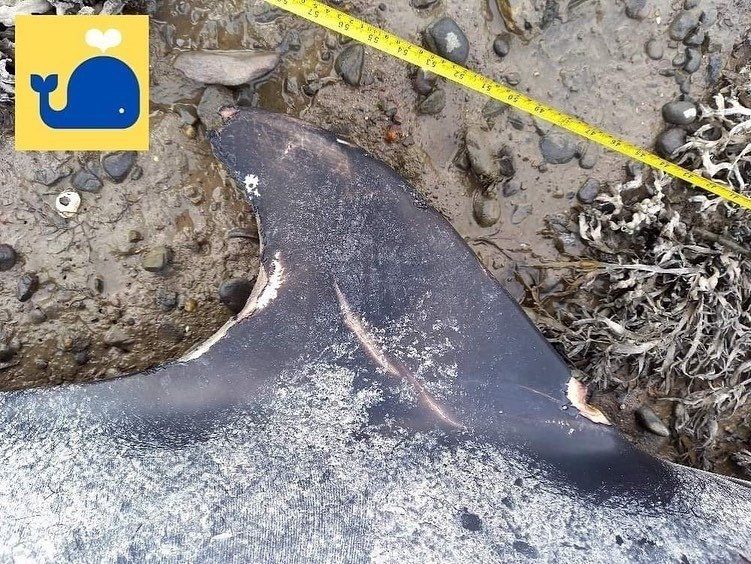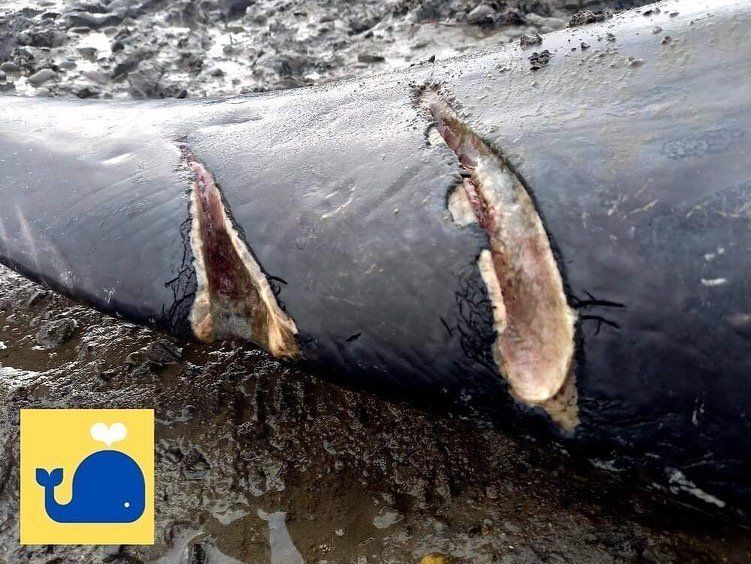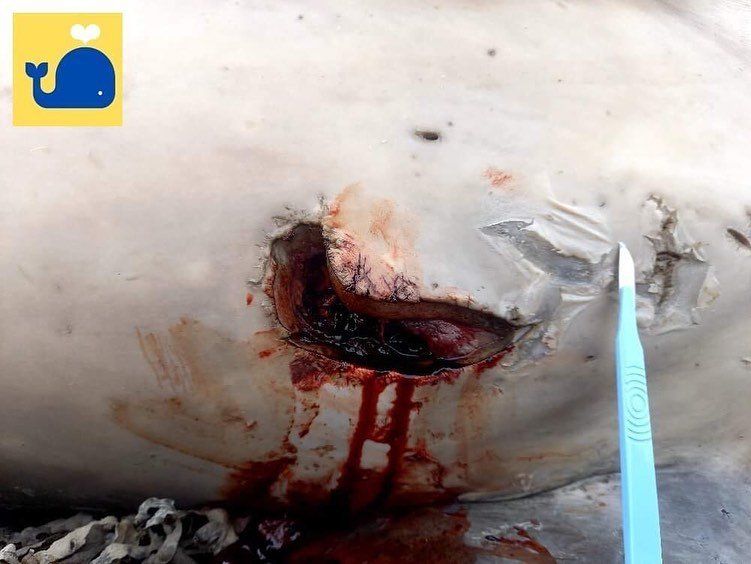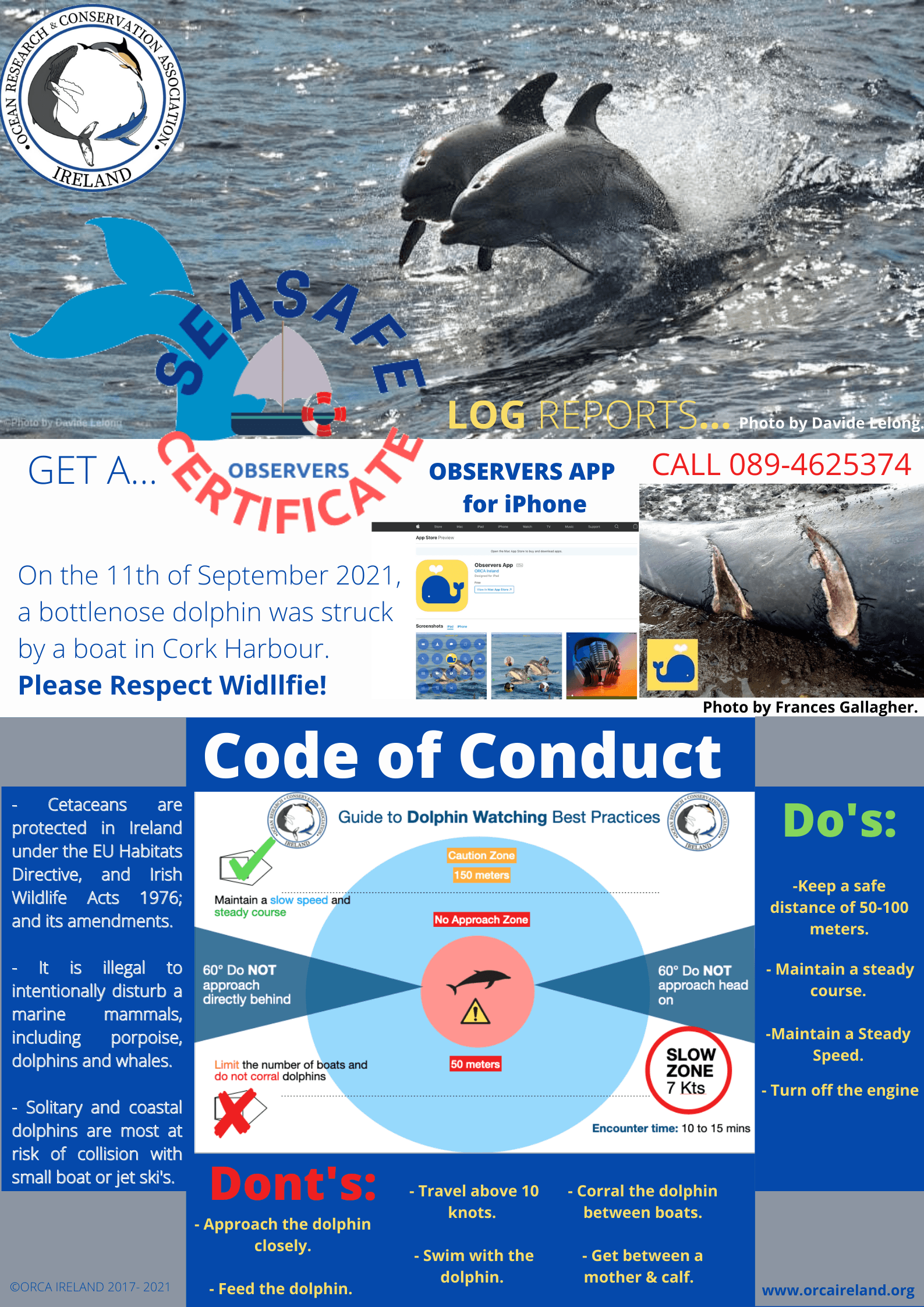Solitary dolphin "Nick" struck by boat in Cork Harbour.
SOLITARY DOLPHIN "NICK" STRUCK BY BOAT IN CORK HARBOUR!
ORCA SciComm Team | 16th of September 2021.
A solitary dolphin identified as “Nick”, who has been traveling back and forth between Ireland’s southeast coast and the west coast of the United Kingdom since mid-summer has been found dead stranded with injuries consistent with a boat strike in Cork Harbour, Ireland.
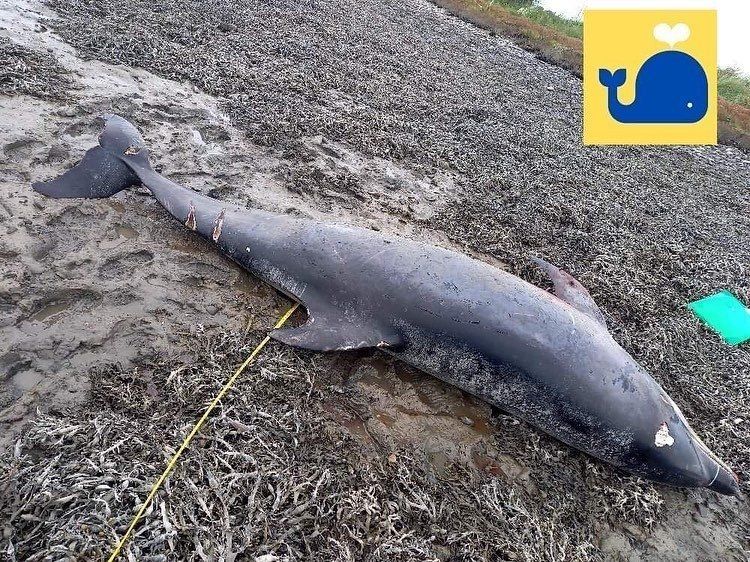
"Nick"s Story:
“Nick” a solitary bottlenose dolphin was first spotted in the Isles of Scilly, Wales in June 2020, before being sighted back in Ireland, and later seen again in the U.K. in August, interacting with boats off Cornwall, and venturing the Helford Estuary, Mounts Bay, and St. Ives Bay. According to the British Divers Marine Life Rescue (BDMLR), during his stay in the waters off Cornwall, “Nick” was observed to have a characteristic scar on his rostrum (beak) that was frequently mistaken for plastic but was likely caused by an entanglement that he had previously survived.
Back in Ireland:
On the 3rd of September, ORCA Ireland received a report to the Observers App from Alex Denby, of a solitary bottlenose dolphin up the River Lee by Kennedy Quay in Cork City, hanging around and following boats closely. His report included that the dolphin was also seen the day before feeding but appeared sluggish.
Boat Strike:
On the 11th of September, Frances Gallagher was made aware of a dolphin that had been stranded in Cork Harbour, however could not access the carcass easily due to the tide and inaccessible location of the dolphin. On the 12th of September, Frances managed to access the dolphin’s remains, which were on the shoreline of Ballinacurra, near Midleton
, Co. Cork. Upon inspection of the carcass, a series of deep parallel lacerations were noted on the dorsal side of the peduncle or tail stock. Smaller lacerations were also present, and one deep wound on the ventral side between the pectoral fins. The injuries and other distinguishing marks were photographed by Frances.
(2/0) the male dolphin measured approx. 2.6 metres in length and was found with multiple external wounds including evidence of previous entanglements in ropes along its torso. images by Frances Gallagher. pic.twitter.com/HhbqMTeoi7
— Observers App (@ObserversApp) September 12, 2021
"Nick" the dolphin's identification was confirmed by BDMLR, as he has a very distinctive dorsal fin and based on the unique scar on his beak.
Dan Jarvis, BDMLR's Area Coordinator for Cornwall and the Isles of Scilly said:
"Nick's death so soon after he became prolific a few short weeks ago just goes to show that there is still a lot of work to be done in raising awareness to the public of how to act around wildlife. Although he will inevitably become just another statistic and case study, we can at least use what's happened to him right now to help get more people to understand why its important that they listen to continual messaging organisations like ourselves put out for following a code of conduct for wildlife interactions and to stop this happening repeatedly, leaving us to pick up the pieces."
Although we cannot be certain that this animal was dead when it sustained these injuries, it is important that we give a general reminder for everyone to please remember to keep a safe distance of 50 - 100 metres from cetaceans at sea and turn your engines off when in the "No Approach Zone" as shown below in the SeaSafe Whale Watching Best Practices.
For more information on ORCA Ireland's SeaSafe Whale & Wildlife Best Practices visit the "Conservation" section on our website www.orcaireland.org.
SHARE THIS ARTICLE







